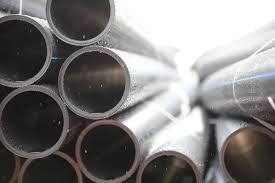Sep . 27, 2024 21:24 Back to list
Wholesale HDPE Pipe Solutions for Diverse Applications and Competitive Pricing Options
An Overview of Wholesale HDPE Pipes Advancements, Applications, and Benefits
High-Density Polyethylene (HDPE) pipes have revolutionized the piping industry over the last few decades, particularly in wholesale markets. Known for their durability, flexibility, and resistance to corrosion, HDPE pipes are becoming increasingly popular in various sectors, including construction, agriculture, and municipal applications. This article explores the significance of HDPE pipes in wholesale, their advancements, applications, and the benefits they offer.
What are HDPE Pipes?
HDPE pipes are made from high-density polyethylene, a thermoplastic polymer that is known for its excellent tensile strength and chemical resistance. They can be produced in various sizes and specifications, allowing for immense versatility in applications. The manufacturing process involves the extrusion of polyethylene resin, resulting in a smooth, seamless pipe that can withstand high pressures and environmental conditions.
The Wholesale Market for HDPE Pipes
The wholesale market for HDPE pipes thrives on the increasing demand for sustainable and efficient piping solutions. As industries strive for cost-effective and environmentally friendly options, HDPE pipes stand out due to their low carbon footprint and recyclability. Wholesale suppliers cater to a diverse range of clients, from municipal bodies needing extensive pipeline networks to agricultural producers requiring irrigation solutions.
Advancements in HDPE Pipe Technology
The HDPE pipe industry has seen significant technological advancements in recent years. Innovations include improved manufacturing processes that enhance the quality and performance of pipes, alongside the development of new grades of HDPE that offer superior properties. For example, the introduction of polyethylene pipes with increased resistance to stress cracking and pipes designed for even higher pressures has expanded the applications of HDPE in challenging environments.
Additionally, the rise of trenchless technology has transformed how HDPE pipes are installed. Companies can now use techniques such as horizontal directional drilling (HDD) to install pipes with minimal disruption to the surrounding area, making it an attractive option for urban applications.
Applications of HDPE Pipes
1. Water Supply Systems HDPE pipes are widely used for transporting potable water due to their safety, durability, and rust-resistant qualities. Their smooth inner walls reduce friction loss and improve water flow.
2. Wastewater Management These pipes are essential in sewer systems and wastewater treatment plants. Their chemical resistance allows them to handle the harsh substances often found in sewage.
wholesale hdpe pipes

3. Irrigation Systems In agriculture, HDPE pipes provide an efficient means of delivering water to crops. Bulk purchasing at wholesale prices allows farmers to install extensive irrigation networks at a fraction of traditional costs.
4. Gas Distribution HDPE pipes have gained acceptance in the distribution of natural gas. Their strength and flexibility make them suitable for underground installation, reducing the risks of leaks.
5. Industrial Applications Many manufacturers utilize HDPE pipes for transporting chemicals and materials due to their high resistance to corrosive substances.
Benefits of Using HDPE Pipes
1. Durability HDPE pipes have a life expectancy of over 50 years. They are resistant to corrosion, rust, and the chemical degradation that plagues metal and lower-grade plastic pipes.
2. Cost-Effectiveness The wholesale market allows for bulk purchasing, which can significantly reduce costs for businesses. Additionally, the longevity and low maintenance of HDPE pipes translate to savings over time.
3. Environmental Sustainability HDPE is made from recyclable materials, and the pipes' production process results in a lower carbon emissions footprint compared to traditional piping solutions.
4. Flexibility and Lightweight HDPE pipes are much lighter than other materials, making them easier to transport and install. Their flexibility means they can be bent to fit around obstacles without the need for additional fittings.
5. Performance With their ability to handle high pressures and resist environmental stress, HDPE pipes maintain performance in various conditions, from intense heat to freezing temperatures.
Conclusion
As industries increasingly recognize the advantages of HDPE pipes, the wholesale market continues to grow. Whether for municipal infrastructure, agricultural practices, or industrial applications, HDPE pipes provide a reliable, durable, and cost-effective solution. The advancements in pipe technology and installation methods enhance their appeal further, ensuring that they remain a staple in modern piping systems. For those looking to invest in piping solutions, considering HDPE pipes from wholesale suppliers may prove to be a wise choice that aligns with sustainability goals while ensuring efficient performance.
-
High-Quality PVC Borehole Pipes Durable & Versatile Pipe Solutions
NewsJul.08,2025
-
High-Quality PVC Perforated Pipes for Efficient Drainage Leading Manufacturers & Factories
NewsJul.08,2025
-
High-Quality PVC Borehole Pipes Durable Pipe Solutions by Leading Manufacturer
NewsJul.08,2025
-
High-Quality PVC Borehole Pipes Reliable PVC Pipe Manufacturer Solutions
NewsJul.07,2025
-
High-Quality UPVC Drain Pipes Durable HDPE & Drain Pipe Solutions
NewsJul.07,2025
-
High-Quality Conduit Pipes & HDPE Conduit Fittings Manufacturer Reliable Factory Supply
NewsJul.06,2025

